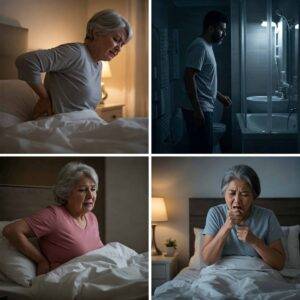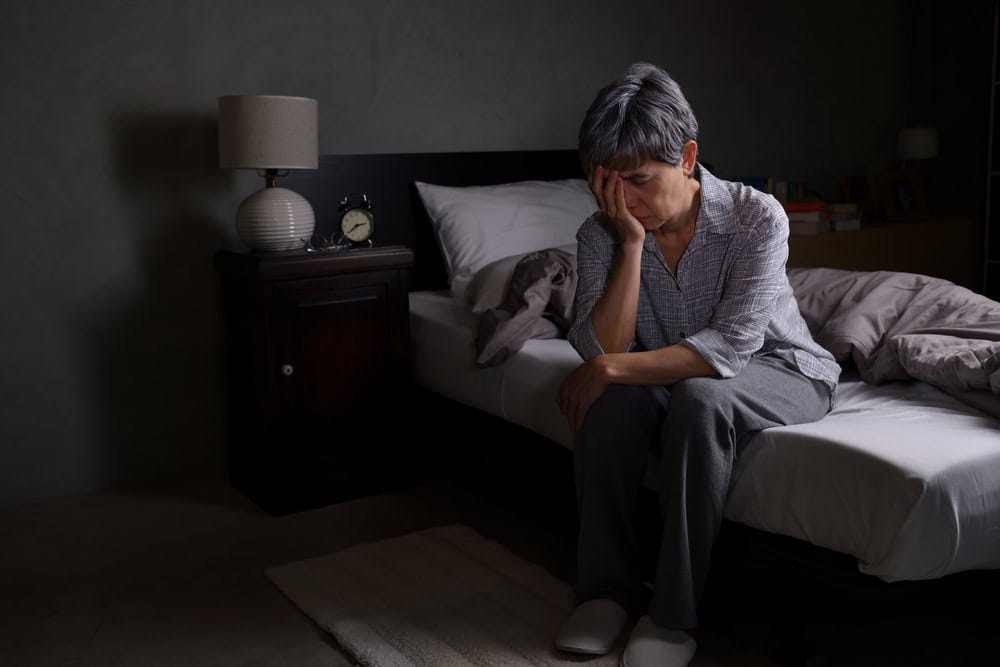
The circadian rhythm is our body’s internal clock that controls when we sleep and wake up. It changes as we age. Teens tend to stay up late and sleep in, while older adults often feel sleepy earlier in the evening and wake up earlier.
After age 45, people may struggle to stay asleep through the night. Seniors, especially those in their 60s and beyond, experience even more sleep disruptions, partly due to less melatonin production.
Hospital stays can further affect seniors’ sleep due to noise, bright lights, and frequent checks by staff. Once discharged, seniors may need help returning to healthy sleeping habits. The presence of an overnight caregiver could assist them in getting enough hours of sleep and feeling better.
Who Is Overnight Home Health Care For?
Overnight care can be beneficial for various types of seniors, particularly those who need extra support or supervision during the night due to health, safety, or personal care needs. If your loved one’s situation is similar to one or more of those in the groups listed below, they might benefit most from overnight care.
Seniors with Dementia or Alzheimer’s Disease
Seniors suffering from dementia often experience confusion, agitation, or wandering at night (a symptom called “sundowning“). They may also wake up disoriented or forget where they are.
Overnight caregivers provide supervision, prevent wandering, and offer comfort when needed. This can reduce the risk of accidents, wandering, and confusion, and caregivers can manage nighttime agitation.
Seniors with Mobility Issues
If your loved one has difficulty moving or getting out of bed safely, they can benefit from overnight care. A caregiver can help them change positions, get up to use the bathroom, or adjust bedding to avoid falls or bedsores.
Having an overnight caregiver can reduce the risk of falls and ensure that seniors move safely during the night.
Seniors Recovering from Surgery or Illness
After surgery or a serious illness, your beloved may require assistance with nighttime care, such as managing pain, changing bandages, or taking medications. Overnight caregivers can help with these needs and provide reassurance by offering medical support, pain management, and assistance with recovery tasks during the night.
Seniors with Incontinence Issues
Many seniors experience incontinence, which can be uncomfortable and embarrassing. Overnight caregivers help seniors manage incontinence by assisting with toileting, changing bedding, or providing incontinence care, ensuring they remain clean and comfortable. This can help maintain dignity and prevent skin issues for your loved one.
Seniors with Chronic Health Conditions
Your beloved may need monitoring during the night if they have any chronic conditions such as diabetes, heart disease, or respiratory problems. For example, if they are diabetics, they may need their blood sugar checked, while others may require oxygen management or assistance with breathing devices.
Seniors with Sleep Disorders
Some seniors suffer from sleep disorders, such as insomnia, restless leg syndrome, or sleep apnea, which can make it difficult to get a full night’s rest. Overnight caregivers help manage these by offering calming routines, assisting with sleep devices (like CPAP for sleep apnea), and providing comfort when sleep disruptions occur.
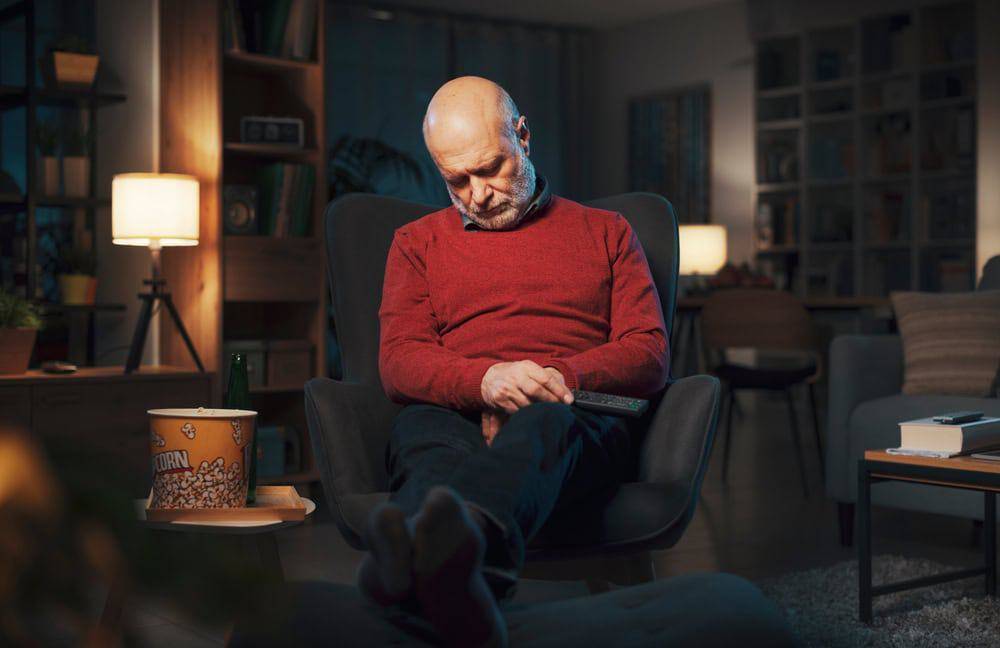
Seniors Who Are at Risk of Falls
Seniors who are prone to falling, especially those who get up frequently at night to use the bathroom, benefit from having someone nearby. Overnight caregivers assist with moving safely around the home, preventing dangerous falls and injuries, especially when moving in dark or unfamiliar spaces at night.
Seniors with Anxiety or Fear of Being Alone
Some seniors could feel anxious or fearful at night, especially if they live alone. Having an overnight caregiver nearby can provide peace of mind and emotional support, helping them feel safe and secure by reducing feelings of isolation or fear.
Seniors Receiving Hospice or Palliative Care
If your beloved elderly are in hospice or palliative care, they probably need help managing pain and other symptoms at night. Overnight caregivers can adjust medications and ensure the senior is as comfortable as possible during end-of-life care. Around-the-clock support for pain management and symptom relief is extremely valuable.
Seniors Who Need Medication Management
Overnight home care can also benefit seniors who take medications that must be administered during the night or those who struggle to remember their medication schedules. Caregivers provide timely medication reminders and help manage complex medication schedules.
Seniors with Frequent Nighttime Bathroom Needs
Seniors who frequently need to use the bathroom at night due to conditions like an enlarged prostate or overactive bladder benefit from having someone available to help them safely reach the bathroom and back to bed.
Seniors with Caregiver Dependence
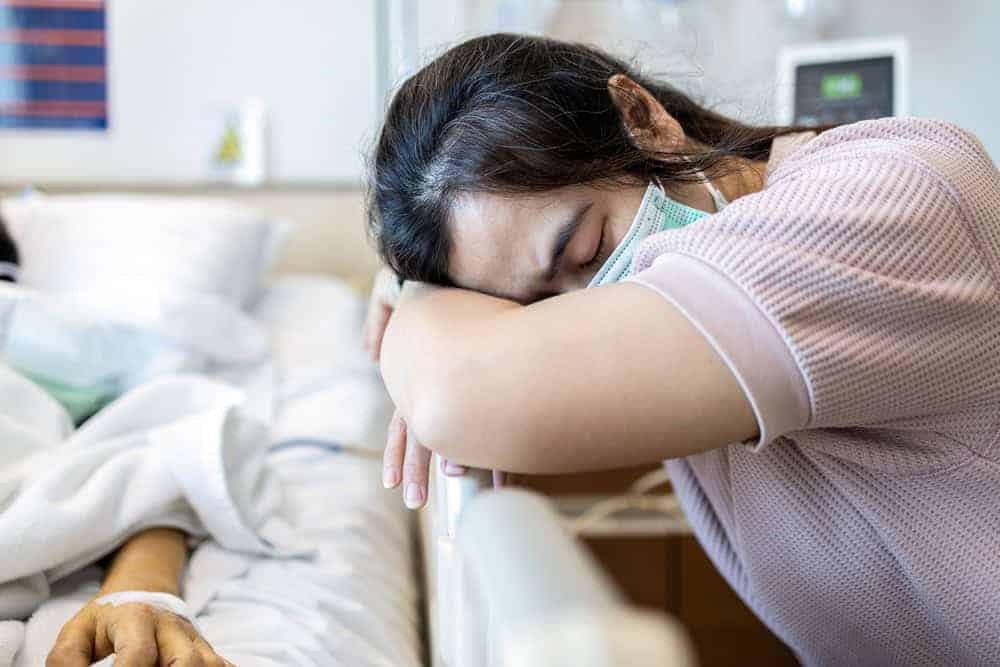
If your loved one relies on family caregivers during the day, they may also need support at night. Overnight care can give your family caregivers a much-needed break, allowing them to rest while ensuring your beloved senior is safe and cared for.
What Kind of Overnight Care Services Are There?
There are several types of overnight care services from which you can choose for your beloved elderly one, depending on their specific needs and health conditions.
1. In-Home Overnight Care
A caregiver stays in the senior’s home throughout the night to assist with their various needs. This type of care can be tailored to the individual and may include help with:
- Toileting or incontinence care
- Medication reminders
- Mobility assistance (e.g., getting in and out of bed)
- Monitoring for safety, such as preventing falls
- Help with sleep disturbances (e.g., providing comfort if the senior wakes up)
There are two types of in-home overnight care.
Awake Overnight Care
The caregiver stays awake all night to provide constant assistance and monitoring. This is ideal for seniors who need frequent help or have health conditions that require close observation.
Sleeping Night Care
The caregiver is present in the home but sleeps during the night. They can be woken up if the senior needs help. This is usually less expensive than awake care but still provides peace of mind for families.
2. Live-In Care
A live-in caregiver stays with the senior 24 hours a day, including overnight. They provide full-time care and are available throughout the night if needed. Live-in caregivers typically get some sleep during the night but are there to help if an emergency arises. This is ideal for seniors who need support, both during the day and at night, but don’t require constant nighttime assistance.
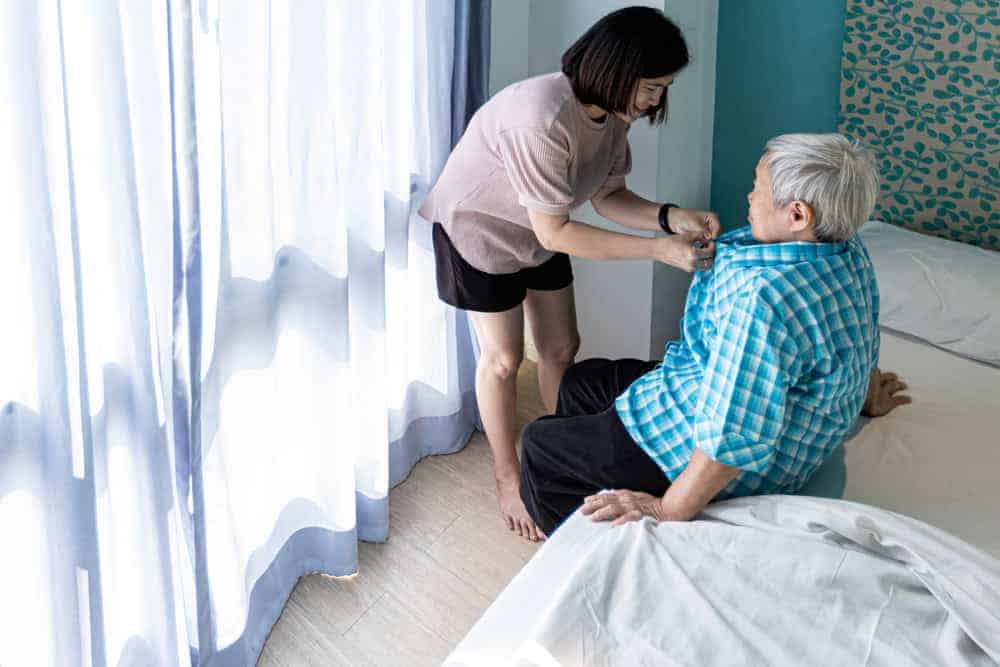
3. Respite Overnight Care
Respite care is a temporary solution that provides relief for family caregivers. An overnight respite caregiver can step in to take care of your loved one, giving family members a break. This type of care can be provided at home or a facility. Being a caregiver can take its toll on families. The respite overnight care is ideal for those who need a break or have special events or vacations.
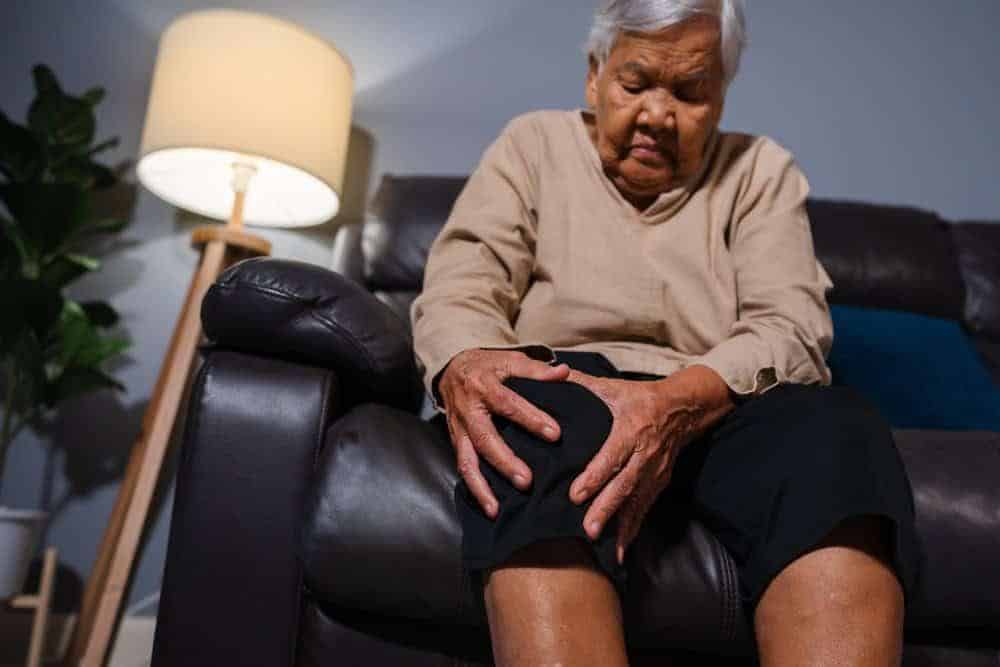
4. Overnight Care in Assisted Living Facilities
Many assisted living facilities offer 24-hour care, which includes overnight supervision and support. Staff at places like Amy’s Eden Senior Care are available to help seniors with nighttime needs, like using the bathroom, managing medications, or responding to emergencies. Seniors who live in assisted living facilities or memory care units and need ongoing support can always rely on this type of care.
5. Hospice or Palliative Overnight Care
Hospice or palliative overnight care focuses on managing pain and symptoms for seniors with terminal illnesses or those receiving end-of-life care. Caregivers or nurses provide comfort, ensure medications are taken, and help with any physical needs throughout the night. Professionals who specialize in delivering end-of-life care can offer much-needed compassion, symptom, and pain management.
6. Hospital-Based Overnight Care
For seniors recovering from surgery, illness, or injury, hospitals often provide overnight care through nurses and medical staff. This type of care is more medical and includes monitoring patients’ vital signs, administering medications, and addressing post-surgery needs.
7. Overnight Care in Skilled Nursing Facilities
In skilled nursing facilities, there is round-the-clock medical care provided by licensed nurses. This includes overnight care for seniors with complex medical conditions who require constant monitoring and treatment. This type of overnight care is suitable for seniors who need ongoing medical care or rehabilitation after a hospital stay.
8. Memory Care Overnight Services
Reputable specialized memory care facilities providing care for seniors with Alzheimer’s disease or other forms of dementia often offer overnight care. Staff are trained to manage nighttime wandering, confusion, or agitation (sundowning). You should consider these facilities if your loved one suffers from second or third-stage dementia and needs help managing nighttime behaviors and ensuring their safety.
What is Sleep Training?
Sleep training for the elderly, a service offered at Amy’s Eden Senior Care Homes, involves strategies and habits to help older adults improve their sleep patterns. It’s similar to the idea of sleep training for infants.
It’s adapted to the unique needs of seniors, who may face challenges like shifting circadian rhythms, medical conditions, or medications that impact sleep.
Sleep training for seniors can with time reduce the need for overnight care. This type of training includes some or all of the following:
1. Setting a Consistent Sleep Schedule
Encouraging older adults to go to bed and wake up at the same time every day helps regulate their internal clock. This consistency can make it easier for them to fall asleep and wake up naturally.
2. Creating a Relaxing Bedtime Routine
Developing a calming pre-sleep routine, such as reading, listening to soft music, or doing some gentle stretches, can signal to the body that it’s time for sleep. This helps the mind and body wind down before bedtime.
3. Improving the Sleep Environment
A comfortable, quiet, and dark room is essential for good sleep. White noise machines, blackout curtains, or sleep masks can help reduce distractions. Ensuring the bed is comfortable, and the room is not too warm also promotes better rest.
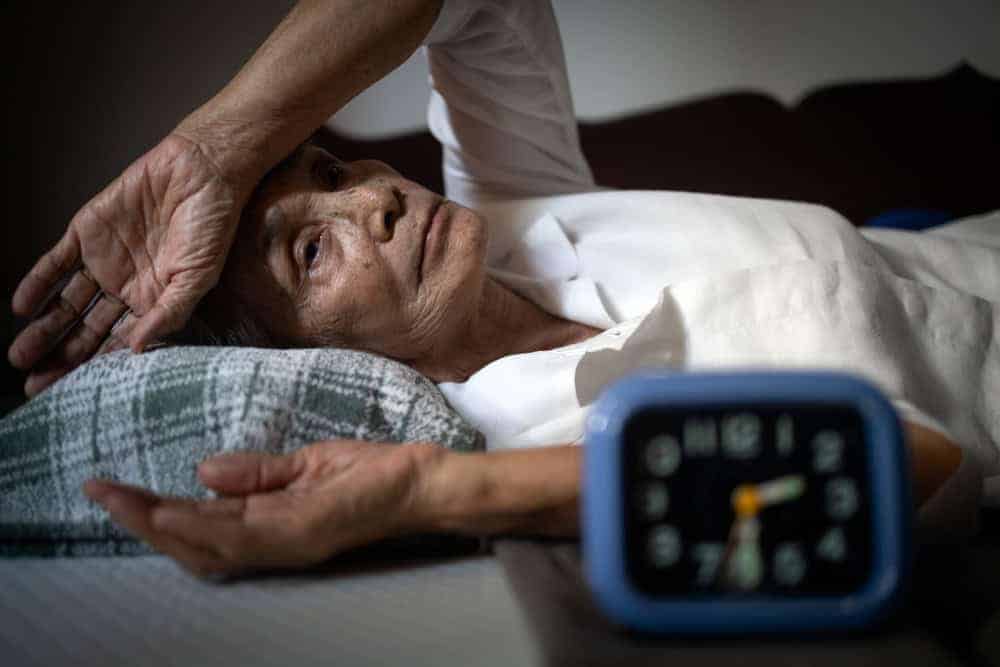
4. Limiting Daytime Naps
While short naps can help some seniors feel refreshed, longer or late-afternoon naps can interfere with nighttime sleep. Sleep training encourages older adults to limit their naps to no more than 20-30 minutes earlier in the afternoon or the day.
5. Increasing Daytime Exposure to Light
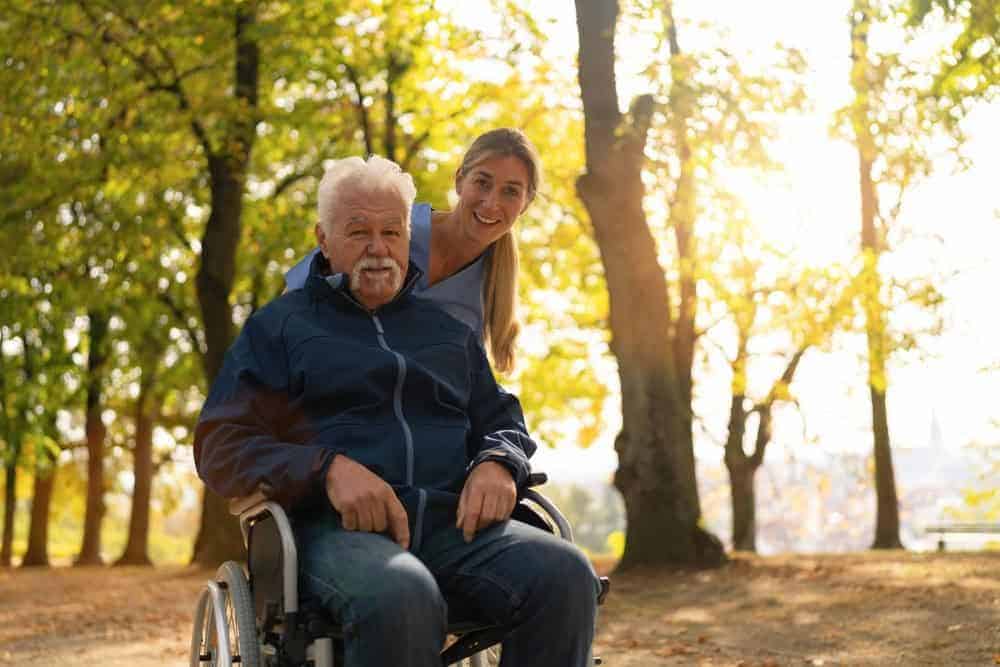
Exposure to natural sunlight, especially in the morning, helps regulate the body’s sleep-wake cycle. During sleep training your loved one will be encouraged to spend more time outdoors or in well-lit areas during the day.
6. Reducing Stimulants and Heavy Meals
Limiting caffeine, nicotine, and large meals close to bedtime can help prevent sleep disruptions. Therefore, our dieticians and nutritionists prepare meal plans that include a light snack in the evening rather than a heavy meal, which can make it hard to fall asleep.
7. Addressing Medical Conditions
Seniors often have health conditions that affect sleep, like arthritis or sleep apnea. Sleep training might involve working in coordination with healthcare providers to manage these issues so they don’t interfere with your beloved’s rest.
8. Cognitive Behavioral Therapy for Insomnia (CBT-I)
CBT-I is a specific type of therapy that can help seniors who struggle with insomnia. It focuses on changing negative thoughts and behaviors related to sleep and is highly effective for many older adults.
9. Gradually Reducing Sleep Aids
If seniors have been using sleep medications, sleep training may involve gradually reducing reliance on these drugs since they can disrupt natural sleep patterns over time.
https://amyseden.com/assisted-living-facilities/
Conclusion
Getting enough healthy sleep is very important for human mental well-being. It helps us do daily tasks with more ease, lowers our chances of falling, makes us feel healthier, and reduces our risk of going to the hospital, along with many other benefits.
However, at our golden age, some of us may need extra help at night. As we age, our sleep patterns change, often making it harder to stay asleep due to reduced melatonin, chronic conditions, or medication effects.
Overnight care for seniors provides essential support for those facing nighttime challenges, such as health issues, mobility problems, or confusion. Seniors recovering from hospital stays may also struggle with sleep, and overnight caregivers help ensure they get proper rest while staying safe.
This type of care is particularly helpful for seniors with dementia or Alzheimer’s, who may become confused or agitated at night, a condition known as “sundowning.”
Caregivers provide supervision and comfort, preventing accidents.
Seniors with mobility issues also benefit, as caregivers assist with moving around safely to avoid falls. Overnight care is also valuable for seniors recovering from surgery or illness, as caregivers help with tasks like pain management and medication. Older adults with conditions like diabetes or heart disease often require nighttime monitoring, and caregivers can manage medical needs.
Different types of overnight care include in-home care, where a caregiver stays awake or sleeps on-site, live-in care for full-time support, and assisted living facilities offering 24-hour supervision. These services ensure seniors are safe and cared for during the night.
Sleep training for the elderly, which can be regarded as an aspect of overnight care, helps aging adults improve sleep patterns by addressing issues like changing circadian rhythms, medical conditions, and medication side effects.
Offered at Amy’s Eden Senior Care Homes, it involves strategies such as setting consistent sleep schedules, creating calming bedtime routines, and optimizing the sleep environment with quiet, dark, and comfortable settings.
Sleep training also encourages limiting naps, increasing exposure to natural light, reducing stimulants like caffeine, and managing health conditions that affect sleep. Techniques like Cognitive Behavioral Therapy for Insomnia (CBT-I) can help reduce anxiety while gradually phasing out sleep aids to support natural sleep patterns. Over time, this can reduce the need for overnight care.
To learn more about Amy’s Eden Senior Care services, call us at (775) 884-3336 or better still – come visit us and maybe you will embrace the golden years with us!




